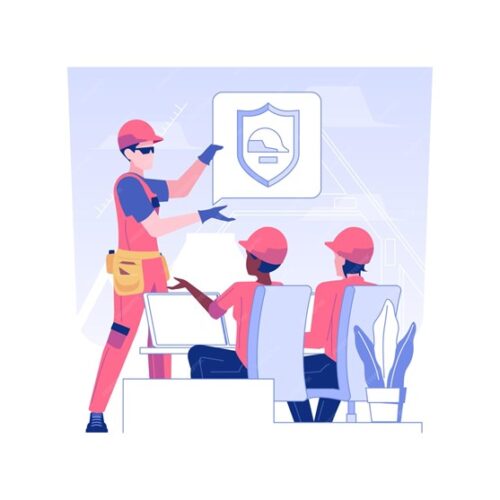In today’s fast-paced and ever-changing business landscape, continuous learning and development have become crucial for both personal and professional growth. One of the most effective ways to facilitate this growth is through self-paced training. Self-paced learning training allows employees to learn at their own pace, giving them the flexibility to fit learning into their busy schedules Adelaide South Australia. This article will explore the impact of self-paced elearning training on employee well-being in South Australia Adelaide, highlighting the benefits it brings to both employees and organizations.
Benefits of Self-Paced Training for Employees
Self-paced training offers several benefits to employees. Firstly, it empowers them to take control of their learning journey. By allowing employees to learn at their own pace, self-paced training promotes autonomy and self-directed learning, which can enhance motivation and engagement. Additionally, self-paced training provides employees with the flexibility to learn at a time and place that suits them best, eliminating the need for rigid schedules and minimizing disruption to their work and personal lives.
Secondly, self-paced training caters to the diverse learning styles and preferences of employees. Some individuals prefer a visual learning approach, while others may be more auditory or kinesthetic learners. Self-paced training can incorporate various multimedia elements such as videos, interactive quizzes, and simulations, enabling employees to learn in a way that resonates with them personally. This personalized learning experience can enhance knowledge retention and application.
Lastly, self-paced training promotes continuous learning and skill development. With the rapid advancement of technology, employees need to stay up to date with the latest trends and developments in their field. Self-paced training provides employees with access to a wide range of online resources and courses, allowing them to acquire new skills and knowledge as needed. This continuous learning culture not only benefits the individual employees but also contributes to the overall growth and innovation of the organization.
The Rise of ELearning in South Australia
E-learning has gained significant popularity in South Australia Adelaide in recent years. With the advent of technology and the widespread availability of internet access, online learning platforms have become increasingly accessible and affordable. E-learning offers several advantages over traditional classroom-based training, making it an attractive option for both individuals and organizations.
One of the primary advantages of e-learning is its flexibility. Employees can access training materials and courses from anywhere, at any time, as long as they have an internet connection. This flexibility eliminates the need for employees to travel to physical training locations, saving time and reducing costs. Moreover, e-learning allows employees to learn at their own pace, ensuring that they can fully comprehend and internalize the material before moving on to the next topic.
Another advantage of e-learning is the wide variety of courses and resources available. Online platforms offer a vast library of courses covering diverse topics, ranging from technical skills to soft skills development. This allows employees to choose courses that align with their specific learning goals and career aspirations. Additionally, e-learning platforms often provide interactive features such as discussion forums and virtual classrooms, enabling learners to engage with instructors and fellow participants, fostering a sense of community and collaboration.
The Impact of Online ELearning Training on Employee Development
The adoption of online elearning training has had a significant impact on employee development in South Australia Adelaide. Firstly, online training provides employees with a cost-effective and time-efficient way to upskill and acquire new knowledge. Traditional classroom-based training often requires significant financial investments for travel, accommodation, and venue rental. In contrast, online training eliminates these costs, making it a more accessible option for organizations of all sizes.
Furthermore, online e-learning training enables employees to learn at their own pace and revisit the material whenever necessary. This flexibility allows individuals to absorb the information more effectively and apply it in their day-to-day work. Additionally, online training often includes interactive elements such as quizzes and assessments, providing immediate feedback to learners, reinforcing learning outcomes, and promoting a deeper understanding of the subject matter.
Moreover, online e-learning training facilitates continuous professional development. With the rapid pace of technological advancements, it is crucial for employees to continuously update their skills and knowledge. Online training platforms offer a vast array of courses covering emerging technologies and industry trends, ensuring that employees remain up to date in their respective fields. This continuous learning not only benefits individual employees but also enhances the organization’s ability to adapt to changing market demands and stay ahead of the competition.
How Self-Paced Training Enhances Employee Well-Being
Self-paced training plays a vital role in enhancing employee well-being. Firstly, it reduces the stress and pressure associated with traditional classroom-based training. In a traditional training setting, employees often feel overwhelmed by the need to keep up with the pace of the instructor and their peers. This can lead to increased anxiety and a sense of inadequacy. Self-paced training allows individuals to learn at their own speed, alleviating this pressure and creating a more relaxed and comfortable learning environment.
Secondly, self-paced training promotes work-life balance. Traditional training programs often require employees to take time off work, disrupting their daily routines and creating additional stress. Self-paced training allows employees to fit learning into their existing schedules, ensuring that they can balance their work commitments with their personal lives. This flexibility contributes to a healthier work-life balance, reducing burnout and improving overall well-being.
Moreover, self-paced training empowers employees and fosters a sense of ownership over their learning journey. When individuals have control over their learning process, they feel more engaged and motivated to succeed. This sense of autonomy and empowerment positively impacts their self-esteem and well-being. Additionally, self-paced training encourages employees to take responsibility for their own development, promoting a growth mindset and a continuous learning culture within the organization.
Tips for Creating a Culture of Growth Through Self-Paced ELearning South Australia
To create a culture of growth through self-paced elearning training, organizations can implement the following tips in Adelaide:
- Promote Awareness and Accessibility: Ensure that employees are aware of the self-paced e-learning training opportunities available to them. Communicate the benefits and advantages of self-paced training, emphasizing its flexibility and personalized learning experience. Provide easy access to online learning platforms and resources.
- Set Clear Learning Objectives: Clearly define the learning objectives and outcomes for each training program. This will help employees understand what they can expect to achieve through their self-paced e-learning journey. Clear expectations contribute to a sense of purpose and motivation.
- Encourage Collaboration and Discussion: Although self-paced training is often an individual endeavor, encourage employees to engage in discussions and share their learnings with their peers. This can be facilitated through online forums, virtual classrooms, or regular team meetings. Collaboration promotes a sense of community and creates opportunities for peer learning and support.
- Provide Ongoing Support and Feedback: Offer support to employees throughout their self-paced e-learning journey. Provide access to subject matter experts who can answer questions and clarify doubts. Additionally, provide regular feedback and assessments to help learners track their progress and identify areas for improvement.
- Recognize and Reward Learning Achievements: Celebrate the achievements of employees who have completed self-paced e-learning programs or acquired new skills. Recognition and rewards can motivate other employees to embark on their own self-paced training journeys and foster a culture of continuous learning.
WHS and Training Compliance Solutions and Self-Paced ELearning in Adelaide
WHS (Work Health and Safety) and training compliance solutions play a crucial role in ensuring a safe and productive work environment. Self-paced e-learning training can be integrated with WHS and training compliance solutions to enhance their effectiveness and efficiency. Online training modules can be tailored to meet specific WHS requirements, enabling employees to acquire the necessary knowledge and skills to maintain a safe workplace.
Adelaide, the capital city of South Australia, has seen a significant adoption of self-paced e-learning training in the context of WHS and training compliance. Organizations in Adelaide can leverage the advantages of self-paced e-learning to ensure that employees are well-versed in WHS regulations and compliance standards. This not only promotes a safe work environment but also avoids potential legal repercussions and associated costs.
By integrating self-paced e-learning training with WHS and training compliance solutions, organizations in Adelaide can streamline their training processes, reduce administrative burdens, and ensure that employees have access to up-to-date and relevant training materials. This comprehensive approach to training compliance contributes to a culture of growth and continuous improvement.
Conclusion: The Future of Self-Paced Elearning Training in South Australia
Self-paced elearning training has revolutionized the learning and development landscape in South Australia Adelaide. Its flexibility, accessibility, and personalized approach have made it a popular choice among employees and organizations alike. As technology continues to evolve, and the demand for continuous learning grows, self-paced training is expected to become even more prevalent.
The impact of self-paced training on employee well-being cannot be understated. By empowering employees to take control of their learning journey, promoting work-life balance, and fostering a culture of growth and continuous learning, organizations in South Australia can create a thriving and engaged workforce.
In conclusion, self-paced training is a powerful tool for enhancing employee well-being and driving organizational success. By embracing self-paced elearning training, organizations in South Australia Adelaide can cultivate a culture of growth, innovation, and continuous improvement, positioning themselves for long-term success in a rapidly changing business landscape.
Interested in implementing self-paced elearning training in your organization Adelaide? Contact us today to discuss how our comprehensive WHS and training compliance solutions can help you create a culture of growth and well-being.












